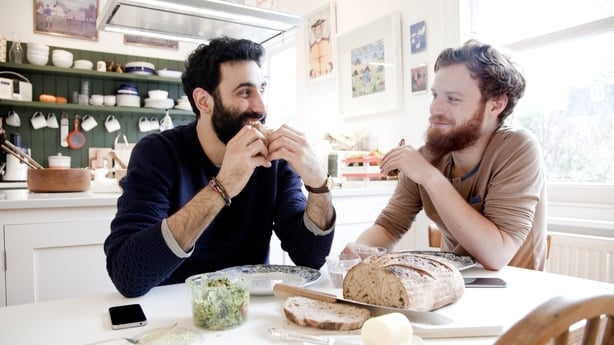Dr. Caroline West is a sex educator and host of the Glow West podcast, which focuses on sex, sexuality, and the body. Here, she writes about 'dead bedrooms' and how to bring intimacy back into your relationship.
If you've never heard of the term 'dead bedroom', you might think that if a couple is not having regular sex, their intimate lives wither away and die off. The phrase sounds so final that you might as well have the funeral and erect a tombstone for your sexual pleasure.
It can also be taken by some as the end of emotional intimacy too, due to the feeling of rejection. Repeatedly being rejected for physical intimacy with the person you love the most can feel like death by a thousand cuts.
But when we frame our sex lives in this way, it's no wonder it can feel hopeless and like an unsolvable situation. The good news is, not only is intimacy fully able to recover, but it can also thrive and become better than it ever was.

One of my favourite expressions is that people are messy. We aren't robots or 24/7 sex machines with perfect bodies. We get sick. We mess up. We get tired, angry, stressed, exhausted. Sometimes the willingness for intimacy is there, but the energy, time or health just isn't.
Life is a lot sometimes, and our moods can ebb and flow. So can our libido, energy levels, level of connection with a partner, our personal relationship with sex, healing stages after trauma, or many more potential factors.
If this feels like it applies to your situation, you can stoke the fires of intimacy in other ways.
Start small: tell each other when you look cute, give compliments, celebrate little joys, increase hugs, or ask each other how they would like to show and be shown affection while you acknowledge sex isn't quite on the cards, but you still want to make each other feel loved while you work on getting your sexual spark back, if that is what you both want. They don't have to be big gestures, and a little effort goes a long way to reconnecting.
A trick that applies quite smoothly to sex is the 'big rock’ tactic, which also works a treat for studying or focusing at work. If you think of the task - whether it is an essay or sex - it can sometimes feel overwhelming and daunting, especially if you haven't done it in a while.

If we then break that big rock up into smaller chunks, it becomes much more manageable, maybe even pleasurable. Small 'pebbles' of just kissing, just holding hands, just hugging, just touching each other, helps make intimacy feel more accessible.
If it feels easier, you may be more enthusiastic and in turn find that for you, desire is responsive and comes alive again once sparked. Maybe you'll want to try a slightly bigger rock next, and maybe not yet.
This mindset can also help you reconnect with pleasure outside of penetration or what you are used to doing. We can get stuck in ruts in many aspects of life and sex is no different, but if there's ever a good time to see if your desires are stirring with new activities, it's in this situation.
Communication is, as always, a key part of this. Shame and frustration thrive in silence. Break this cycle by acknowledging the situation, as hard as that may seem. Are there issues bubbling under the surface that need to come to light before sex can ever be considered? If it doesn't come back to life, what does that mean for the relationship, and what options are available to you?

This is also a critical moment for self-reflection and emotional intelligence. Sometimes, a reason for having less intimacy is obvious, like poor health or lack of free time, but other times the reason is a little harder to hear.
Techniques that don't satisfy our partners can result in them not wanting to do that again. Rather than admit we don't know something and take a knock to the ego, we guess what to do, or copy what we see in porn, or repeat what worked for someone else.
It's not about blame - most of us got inadequate sex education that left us still in the dark about what sex is, and what to do when it goes wrong or doesn't click for all partners. Learning how to communicate what we like is scary and admitting that we aren't sure what we are doing can be really hard to do, for fear of judgement.
This fear has its roots in social norms too: men are expected to sleep around, initiate sex, know what to do; women may be judged as promiscuous if they say how much they like sex, carry condoms, or are expected to be passive and wait for a man to make the first move.
While a lot of these gendered biases are being increasingly challenged, these social pressures are still stifling when they emerge and contribute to shame, which in turn impacts our sex lives and confidence.

Despite these fears and vulnerabilities, true sexual happiness comes from being willing to be honest with yourself and any partners, and being willing to put the work in to learn how to communicate in ways that work for you both.
Pleasure is not a dirty word, and many people who go through very normal and very human dips in desire and intimacy find their way back to each other. If that desire to work together to get through it isn't there, you will have to have some conversations that might be hard, but working through this awkwardness will pay dividends one way or another.
It needs work, but a ‘dead bedroom’ can once again become a thriving sexual space for all parties.
The views expressed here are those of the author and do not represent or reflect the views of RTÉ.


